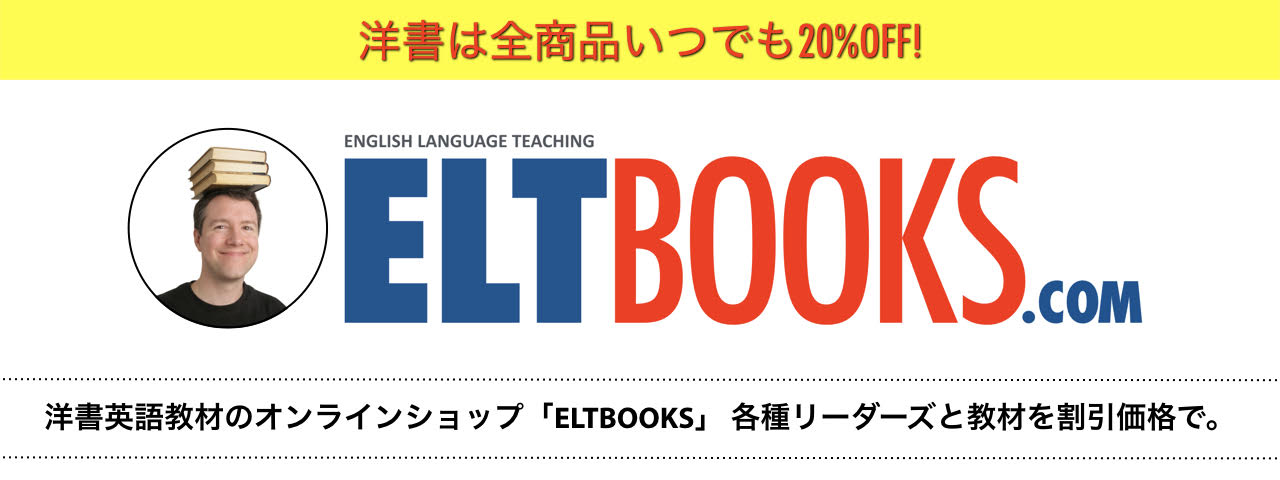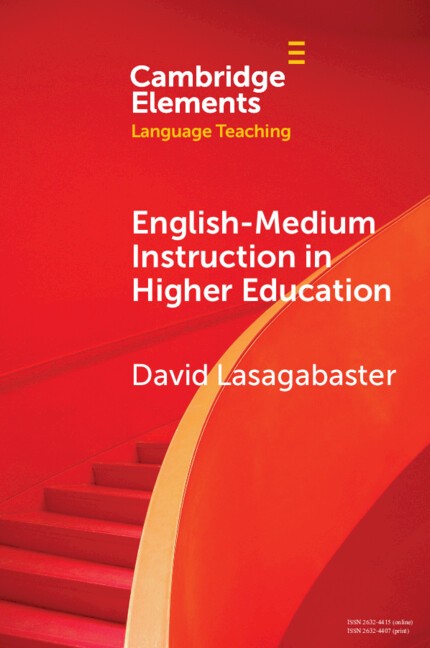Home >
Cambridge Elements in Language Teaching >
English-Medium Instruction in Higher Education (Paperback)
Cambridge Elements in Language Teaching
English-Medium Instruction in Higher Education (Paperback)
ISBN: 9781108829052
Series: Cambridge Elements in Language Teaching
English-Medium Instruction in Higher Education (Paperback)
Cambridge Elements in Language Teaching English-Medium Instruction in Higher Education (Paperback) メディア > 書籍 > ノンフィクション > 言語学習書 Now available| ご注文はこちら |
ISBN
9781108829052 (旧規格ISBN: 1108829058)
- 説明
- シリーズの説明
This Element focuses on English-Medium instruction (EMI), an educational approach that is spreading widely and rapidly in higher education institutions throughout the world because it is regarded as a lynchpin of the internationalisation process. The main aim of the Element is to provide critical insights into EMI implementation and the results obtained so far in diverse university contexts. After defining EMI and analysing the rapid extension it has experienced, the volume tackles issues such as stakeholders' views on how EMI programmes are being implemented, the impact of teaching and learning both content and language in a foreign language, translanguaging practices in English-medium lectures, and how assessment has hitherto been addressed. Each section aims to bring to light new avenues for research. The Element wraps up with a description of the many challenges ahead.
Language teaching as a field of study straddles the disciplines of education and applied linguistics (and at times other disciplines such as applied psychology and applied sociology). As societies have become increasingly mobile, language teaching practices have changed to keep pace with changing learners’ needs. Globalisation has led to dramatic changes in language pedagogies, both in terms of the rise of global lingua franca such as English, Spanish, Chinese, and Arabic, as well as issues surrounding language teaching in immigrant communities.
As language teaching has developed as a distinct academic field, some scholars have observed a widening gap between researchers and practitioners, accompanied by limited exposure to research by teachers, and a disconnect between professional and academic publications. This elements series aims to close this gap by allying research with language teaching practices, in its exploration of research-informed pedagogy, and pedagogy-informed research. The series builds upon a rich history of pedagogical research in its exploration of new insights within the field of language teaching.
As language teaching has developed as a distinct academic field, some scholars have observed a widening gap between researchers and practitioners, accompanied by limited exposure to research by teachers, and a disconnect between professional and academic publications. This elements series aims to close this gap by allying research with language teaching practices, in its exploration of research-informed pedagogy, and pedagogy-informed research. The series builds upon a rich history of pedagogical research in its exploration of new insights within the field of language teaching.
This Element focuses on English-Medium instruction (EMI), an educational approach that is spreading widely and rapidly in higher education institutions throughout the world because it is regarded as a lynchpin of the internationalisation process. The main aim of the Element is to provide critical insights into EMI implementation and the results obtained so far in diverse university contexts. After defining EMI and analysing the rapid extension it has experienced, the volume tackles issues such as stakeholders' views on how EMI programmes are being implemented, the impact of teaching and learning both content and language in a foreign language, translanguaging practices in English-medium lectures, and how assessment has hitherto been addressed. Each section aims to bring to light new avenues for research. The Element wraps up with a description of the many challenges ahead.
As language teaching has developed as a distinct academic field, some scholars have observed a widening gap between researchers and practitioners, accompanied by limited exposure to research by teachers, and a disconnect between professional and academic publications. This elements series aims to close this gap by allying research with language teaching practices, in its exploration of research-informed pedagogy, and pedagogy-informed research. The series builds upon a rich history of pedagogical research in its exploration of new insights within the field of language teaching.
シリーズの説明
Language teaching as a field of study straddles the disciplines of education and applied linguistics (and at times other disciplines such as applied psychology and applied sociology). As societies have become increasingly mobile, language teaching practices have changed to keep pace with changing learners’ needs. Globalisation has led to dramatic changes in language pedagogies, both in terms of the rise of global lingua franca such as English, Spanish, Chinese, and Arabic, as well as issues surrounding language teaching in immigrant communities.As language teaching has developed as a distinct academic field, some scholars have observed a widening gap between researchers and practitioners, accompanied by limited exposure to research by teachers, and a disconnect between professional and academic publications. This elements series aims to close this gap by allying research with language teaching practices, in its exploration of research-informed pedagogy, and pedagogy-informed research. The series builds upon a rich history of pedagogical research in its exploration of new insights within the field of language teaching.
EASY ORDER FORM
表示価格が税込価格
価格(税抜):
3,630 円 2,904 円 ∼ 20% OFF!


